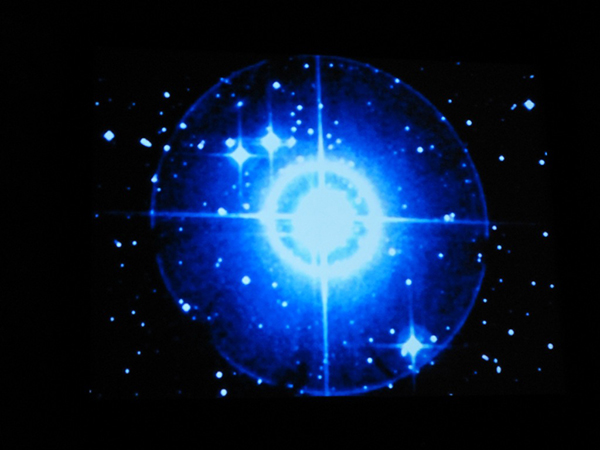
Stargazing students can catch a glimpse of the cosmos this semester at Astronomy Nights on the first and third Thursdays of each month in the John R. Kirk Planetarium and the Smolen Observatory.
The programs provide a service to the community, physics and astronomy Lecturer Raj Pandya said.
Pandya said the planetarium shows last for about 45 minutes and change each time to give attendees a different glimpse at the galaxies.
“We point out what stars, constellations, planets and other objects may be visible for that night. We also include some of the mythology behind the names of the constellations,” Pandya said.“Each show ends with a different topic related to astronomy that usually has to do with a current event or discovery in the field.”
The Smolen Observatory is open on clear nights after the shows, Pandya said. A typical viewing night will include a planet or two, star clusters, binary stars and nebulae.
Pandya, who has been program director since 2011, said he puts on these shows with the help of physics and astronomy Assistant Professor Amy Forestell, who runs the observatory. The two work together to promote the shows and try to get students involved.
Pandya said he is also training students to put on shows, by teaching them how to use the planetarium’s projector and give meaningful presentations to a variety of audiences. Pandya said that in the next few semesters, an official class called Planetarium Operation will be offered to teach these skills.
First-year trainee and undeclared major Michelle Scuderi said she plans to declare astronomy as her major after attending all the astronomy nights this semester.
Scuderi said she decided to get trained and start learning how to work the planetarium and observatory because she loved learning about the constellations and what exactly is going on in the sky.
“Raj and Amy have got a great program and I’ve already learned so much just in the first few weeks,” Scuderi said. “I love being a part of the astronomy nights and I hope everyone gets a chance to experience it.”
Pandya said he hopes that these shows will help generate the same interest in astronomy, especially for young children, but said that it is never too late to learn. Although he was always intrigued by the way physics and math could explain what happens in space, he said he didn’t decide to study astronomy until he went to college.
“I think most people do find the topic of astronomy [and] space science very interesting, but many people do not have the time to truly learn it and appreciate it,” Pandya said. “Sometimes people are even misinformed about topics [and] phenomena in astronomy and what astronomers do.”
Tanique Williams

